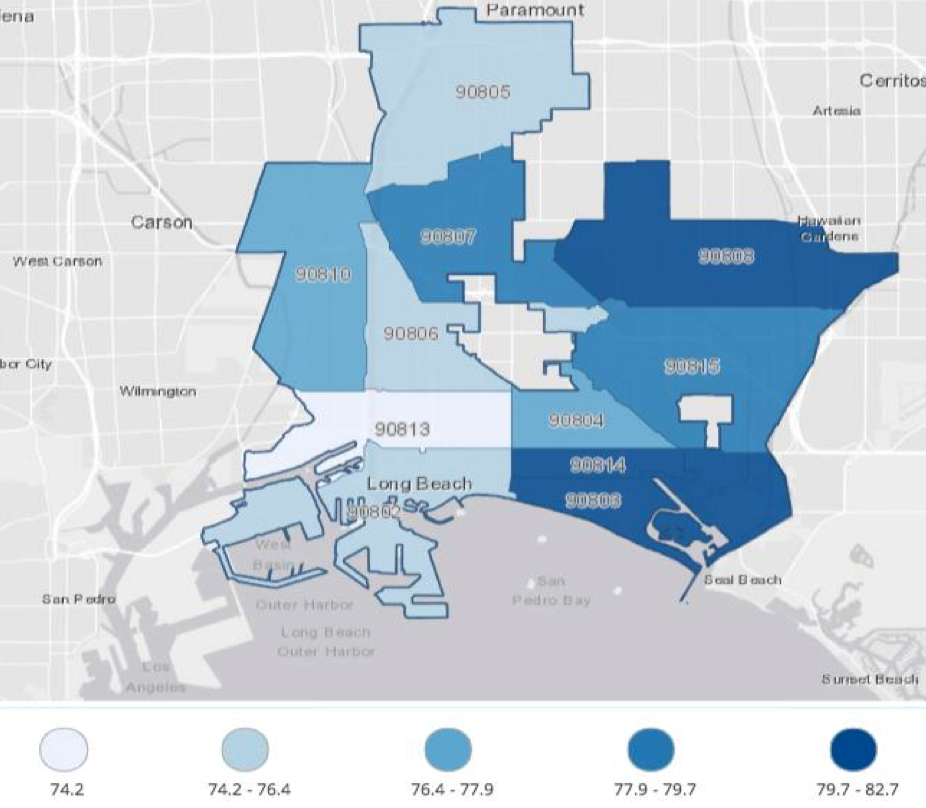The Long Beach Health and Human Services Department is revamping its process for distributing COVID-19 recovery grants with an eye toward equity.
While the Health Department has already issued about $6 million in federal CARES Act funds to community organizations and other partners, the agency announced last month that it has now developed an “equity investment framework” that will bring an equity lens to awarding grants through the Long Beach Recovery Act moving forward.
The Long Beach Recovery Act is the plan the City Council adopted last year for spending COVID-19 recovery funds from the federal and state governments.
Under this new framework, Long Beach Health Department Director Kelly Colopy said her team will now prioritize awarding money to grassroots organizations that are working in communities that have been the most affected by the pandemic.

The Health Department’s data has shown that there is an over-representation of COVID-19 hospitalizations and deaths among those living in poverty and overcrowded conditions, among Black, Latino and Native Pacific Islanders, and among those who were unvaccinated. The department’s data has also shown that nearly two-thirds of those hospitalized had diabetes or hypertension as an underlying health condition, according to city officials.
Native Hawaiian and Pacific Islanders in Long Beach, for example, were seven times more likely to die and nine times more likely to be hospitalized for COVID-19 than White residents. Black Americans have also been disproportionately impacted by the pandemic.
But the impacts don’t end there. The pandemic has also exacerbated food insecurity, mental health issues, trauma, violence, income loss, chronic illness, grief and isolation. And in the meantime, community members have stepped up to help, such as by introducing more urban farming and food distributions or increasing food access.
The Health Department will look to fund organizations doing that type of work. Colopy said the department will focus on both addressing the impacts of the pandemic and preventing those negative outcomes from happening in the first place.
Colopy acknowledged that there are many organizations in the city that regularly apply for grants, so the department also wants to increase its outreach to organizations that are less experienced and provide technical assistance through an external partner that will help both with the application process and with the implementation of community projects.
The timing of this new framework stems from Racial Equity and Reconciliation Initiative, city officials said. This framework strengthens and aligns with one of the goals of the initiative, which is to “improve health and wellness in the City by eliminating social and economic disparities in the communities most impacted by racism.”
To that end, the city also this week officially opened a new health equity center in North Long Beach. The center will be another way for the Health Department to bring resources to the public, especially youth and families.

As for the new framework, the Health Department launched its first informational meeting two weeks ago, and a follow-up meeting will be planned in person in the near future, officials said.
Future Long Beach Recovery Act allocations for health equity that will be subject to the new equity framework include $2.8 million for the city’s Health Equity Fund, $400,000 for immigrant support services and $3.8 million for addressing health disparities, Health Department spokeswoman Jennifer Rice Epstein said in an email.
To find grants and other funding opportunities that are live now or will become available in the future, visit longbeach.gov/recovery. To access other financial relief opportunities, call the BizCare hotline or click here.
A sweeping city plan sought racial reconciliation; how’s Long Beach done so far?
City opens health equity center in North Long Beach with focus on supporting youth, families

